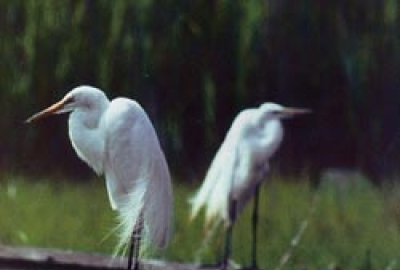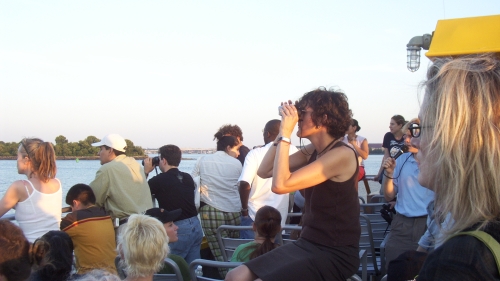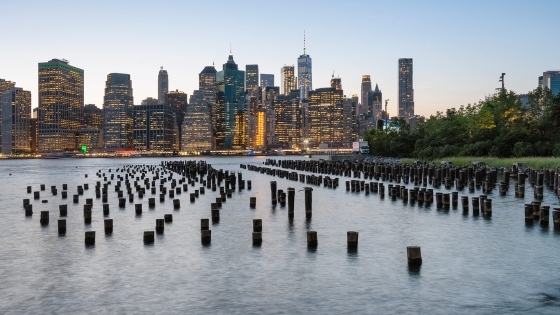
Using The Hudson River As A Resource For Teaching and Learning
The Hudson River Teacher Education Program was initiated with NSF funding to help teachers learn about current research and issues affecting the Hudson River Estuary and the New York Harbor. Our goal is to form a network of teachers, scientists, and stewards working together in conserving the city’s vital natural resources. Through collaboration we can foster scientific inquiry and environmental stewardship. During the school year, the program offers seminars, workshops and field trips related to the Hudson River and the New York/New Jersey Harbor.
With additional support from the New York City Environmental Fund, the program was expanded to include a summer component for teachers. Teachers participate in a 3-week intensive field-based learning experience which includes field trips, seminars, and hands-on activities in and around the Hudson River Estuary. Teachers receive a wealth of information to take back to the classroom. Participants engage in scientific research, education and stewardship projects that focus on the Hudson River Estuary. Upon completion of the program, teachers become part of a network of NYU "Hudson River Teachers" and engage in ongoing curriculum development in their respective schools.
The Hudson River Teacher's Resource Guide is a compilation of resources garnered from our seminar series and summer program. It includes books, websites, journal articles, and links to organizations related to the study of the Hudson River. In addition, H2O: The Highlands to Ocean Region is used to increase teacher's knowledge of Hudson River issues. Other Hudson River curriculum resources include:
Creating The Network!
For the past four years, teachers from our Hudson River Teacher Education Program have participated in DEC's A Day in the Life of the Hudson River, a "celebration" of the Hudson River in combination with education programs. On SnapShot day students from the Troy dam to the New York Harbor participate in water quality testing, data collection, and hands-on activities that help them learn about the Hudson River Estuary. Collectively, they develop a portrait of a-day-in-the-life of the Hudson River.
In 2005 we collaborated with the New York/ New Jersey Harbor Estuary Program, an extension of New York Sea Grant to support their National Estuaries Day programming. In collaboration with NOAA’s National Estuarine Research Reserve System and the U.S. EPA’s National Estuary Program the estuary program hosts ongoing activities as part of Estuaries Live! , a celebration of our local natural resources that helps to educate the public on the importance of estuaries and the need to protect them. In September 2005 we were delighted to have one of our own Hudson River Teachers, Cristina Trowbridge from Humanities Prep H.S, have her entire class participate in this day and take part in activities at Liberty State Park.
Teacher Workshops in Environmental Education
The Wallerstein Collaborative offers a variety of workshops for pre-service and in-service teachers. Workshops include NYS DEC's Project Wild, Project WET, Project Learning Tree as well as other workshops designed to help teachers implement environmental education curricula in their classroom.
Additonal workshops include our annual Water Quality Testing Sail offered in cooperation with the NYC Soil and Water Conservation District and the South Street Seaport.

Summer Program
Our summer program exposes K-12 teachers to field-based studies using a variety of settings in and around the metropolitan area. Participants engage in research projects, field trips, stewardship activities, seminars, and workshops to increase their knowledge about local issues impacting the health of the Hudson River Estuary. Teachers learn how to incorporate environmental education into their classrooms. Graduate credit is available. Cooperating teacher's vouchers are also accepted.
Teachers find that the experience gives them the tools for "incorporating real-world meaningful experiences" into their curriculum.
I feel better prepared to help students, many of them struggling learners, understand, be inspired by, and find alternative resources for some of the academic work they will be tackling in the year ahead.

